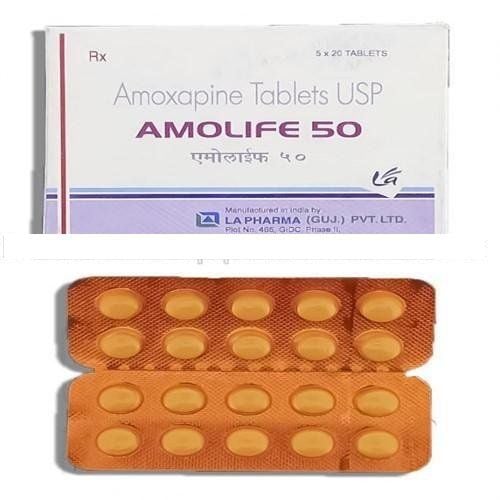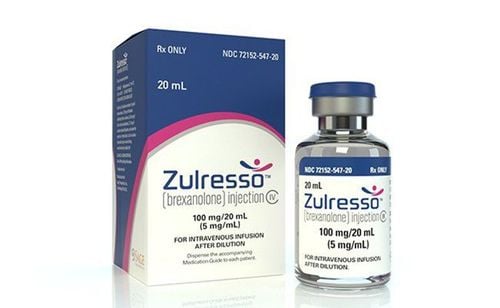This is an automatically translated article.
If you've been diagnosed with postpartum depression, finding treatment to alleviate the symptoms of depression is crucial for the health of you and your baby.
1. What is baby blues syndrome?
It can be difficult to tell the difference between baby blues and postpartum depression.) According to recent statistics, up to 80% of mothers have experienced baby blues syndrome.
Baby blues usually begins a few days after birth and goes away on its own after a week or two. Symptoms of this syndrome include:
Crying easily Lightheadedness Unhappy Irritability Feeling overwhelmed Difficulty concentrating Difficulty sleeping Anxiety Self-doubt Fatigue However, you may experience depression later delivery (postpartum depression) if the above symptoms:
Last for more than two weeks The symptoms are so severe that they prevent you from doing your daily tasks such as taking care of yourself and your baby.

Khó ngủ là một trong những triệu chứng của hội chứng baby blues
2. What is postpartum depression?
Postpartum depression is a very common and treatable maternal mental health condition. An estimated 1 in 7 new mothers experience postpartum depression, but many experts believe the number is even higher because so many women don't seek treatment or are concerned about baby syndrome. blues as a mother for the first time.
The difference between postpartum depression and other depression is timing: Postpartum depression occurs during the first year after childbirth. And postpartum depression can be caused by the hormonal changes that happen after childbirth.
Postpartum depression can start days, weeks, or months after pregnancy or even during pregnancy. You may have postpartum depression if you experience any of the following symptoms:
Extreme sadness, emptiness or hopelessness Frequent crying Loss of interest or lack of interest in previous activities and hobbies Difficulty sleeping at night or staying awake during the day Loss of appetite or overeating, or unexplained weight loss or unusual weight gain Overwhelming feelings of worthlessness or guilt Restlessness or lethargy laziness Difficulty concentrating or making decisions Feeling life is not worth living Mood swings Difficulty building a bond with baby such as hating or not loving your baby Extreme anxiety Having thoughts of harming yourself or your baby little.

Sau sinh bạn cảm thấy cuộc sống không đáng sống đó là dấu hiệu của trầm cảm
Other possible signs of postpartum depression include:
Irritability or anger Stay away from friends and family Excessive worry about the baby Worrying that you are not a good mother Don't care caring for the baby or not being able to care for the baby Feeling so exhausted that you can't get out of bed for hours In rarer cases, some women have visions or hallucinations, and even have may harm their baby. This is called Postpartum Psychosis. If you suspect you have the above symptoms, seek medical help immediately.
3. How long does postpartum depression last?
How long the illness lasts varies from person to person because it depends on many factors, including when symptoms started, severity of symptoms, whether you have had depression in the past, and diagnosis early diagnosis and treatment.
Some women respond quickly to treatment, women with untreated postpartum depression may experience chronic depression longer.
The best way to ensure the fastest recovery is to see a mental health professional and implement a treatment plan as soon as possible.

Nếu nghi ngờ trầm cảm sau sinh, bạn nên đến gặp bác sĩ để được chẩn đoán, điều trị
4. Causes of postpartum depression
Postpartum depression is the result of a combination of hormonal, environmental, emotional and genetic factors.
When you're pregnant, your estrogen and progesterone levels skyrocket. Within a day of giving birth, levels of this hormone drop to pre-pregnancy levels. This is a factor that plays a role in the mechanism of postpartum depression.
For some women, the drop in thyroid hormone that occurs after giving birth can cause postpartum thyroiditis and cause symptoms similar to depression. This condition usually appears 4 to 12 months after birth. If you go to the doctor, your doctor may do blood tests to see if your thyroid is causing your symptoms and prescribe thyroid medication if necessary.
Other factors that contribute to the development of postpartum depression include physical exhaustion after giving birth, lack of sleep, mixed feelings about becoming a mother, and lack of sleep.
Every new mom is at risk for postpartum depression, but some women are at higher risk. The strongest predictors of postpartum depression are:
Previous history of depression Depression or anxiety during pregnancy An event during pregnancy or shortly after birth Trauma during preterm birth Newborn baby needs special care Having breastfeeding problems Unresolved childhood trauma

Phụ nữ sinh non tăng nguy cơ mắc trầm cảm sau sinh
Other risk factors include:
Unplanned or unwanted pregnancy Babies born with birth defects or other medical problems Multiple pregnancy Family history of mental problems Single Low socioeconomic status or financial instability Domestic violence Unemployment Pregnancy complications Gestational diabetes .
5. What is the treatment for postpartum depression?
The most common treatments are counseling, antidepressants, or both, depending on your symptoms.
Counseling therapy: Also known as counseling or psychotherapy, talk therapy can be face-to-face with a therapist or talking to a group of women who also have postpartum depression. Antidepressants: Prescription medications can help balance the chemicals in your brain that regulate your mood. Different types of antidepressants work in different ways. Antidepressants can cause side effects, but most go away after a short time. If you experience side effects that interfere with your daily life or your depressive symptoms get worse, tell your treating doctor right away. Transcranial Magnetic Stimulation (TMS): Research has shown that noninvasive brain stimulation techniques can be effective for about half of people with postpartum depression who have not responded effectively to medication. A magnetic field (similar to the one used in an MRI) is used to target areas of the brain that are involved in depression. However, this therapy is not suitable for people at high risk for seizures.

Thuốc chống trầm cảm được sử dụng nhằm điều trị trầm cảm sau sinh
Anticonvulsant Therapy (ECT): Some women have very severe postpartum depression that doesn't respond to counseling or medication therapy. In this case, the doctor may prescribe anti-shock therapy. With ECT, a small electrical current is passed through the brain while the patient is under general anesthesia. Experts believe that this electrical stimulation causes chemical changes in the brain that reduce symptoms of depression. For more information, please contact the hospitals and clinics of Vinmec health system nationwide.
Please dial HOTLINE for more information or register for an appointment HERE. Download MyVinmec app to make appointments faster and to manage your bookings easily.
Reference source: babycenter.com
READ MORE
Early signs of postpartum depression Can postpartum depression be cured? Identifying postpartum depression - can it go away on its own?













